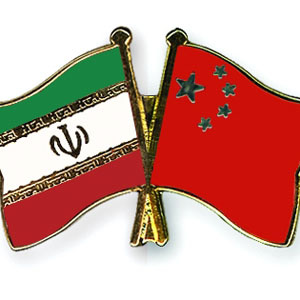Paradoxical on the Surface, Intelligent Under
How is China dealing with Iran’s nuclear case? By Mohammad Hosein Malaek, Iran’s former ambassador to China

While the United States has started lobbying to impose another set of sanctions against Iran, Chinese diplomats say that no discussions on new sanctions are on the agenda during their presidency over UN Security Council.
Mohammad Hosein Malaek, Iran’s former ambassador to China and foreign affairs analyst says that:
China’s fundamental stance has been to reduce tensions and avoid any measure which leads to violent confrontation. At the end of the day, even if the confrontation escalates to a new level and Iran and the United States enter into a military face-off, China prefers to step aside and keep immune of the damage.
China has so far voted in favor of all sanctions and resolutions against Iran. Nevertheless, Peking’s basic policy is to back diplomatic means such as negotiations in dealing with Iran’s nuclear program. Unlike Iran, the Chinese believe that the possibility of U.S. or Israel using military power is serious, that is military attack against Iran is a likely alternative to diplomacy in Chinese analysis of the situation. Peking expects the negotiations to change course and turn into confrontation any point in time. That explains why the Chinese diplomats support solutions that reduce the tension and violence.
Last Tuesday, Zhang Yesui, China’s envoy to the United Nations stated that now is not the right time for sanctions since diplomatic efforts "need more time and patience". While China’s official stance has not changed since three years ago, their actual measures appear contradictory and bring questions to mind. Chinese have issued new letters of credit for Iranian traders recently, a step which can remove some of the pressure on Tehran and loosen the cordon of fiscal sanctions. On the other hand, without any advanced notice and with no explicit reason, the Chinese have suspended all Tehran-Urumqi-Peking flights since one month ago. This was regarded as some as the initial step towards imposition of a flight embargo on Tehran. China’s measures may appear paradoxical at the first sight, but under the surface, they are clearly intelligent moves to maintain the country’s interests.
Mohammad Hosein Malaek, Iran’s former ambassador to China and foreign affairs analyst says that:
China’s fundamental stance has been to reduce tensions and avoid any measure which leads to violent confrontation. At the end of the day, even if the confrontation escalates to a new level and Iran and the United States enter into a military face-off, China prefers to step aside and keep immune of the damage.
China has so far voted in favor of all sanctions and resolutions against Iran. Nevertheless, Peking’s basic policy is to back diplomatic means such as negotiations in dealing with Iran’s nuclear program. Unlike Iran, the Chinese believe that the possibility of U.S. or Israel using military power is serious, that is military attack against Iran is a likely alternative to diplomacy in Chinese analysis of the situation. Peking expects the negotiations to change course and turn into confrontation any point in time. That explains why the Chinese diplomats support solutions that reduce the tension and violence.
Last Tuesday, Zhang Yesui, China’s envoy to the United Nations stated that now is not the right time for sanctions since diplomatic efforts "need more time and patience". While China’s official stance has not changed since three years ago, their actual measures appear contradictory and bring questions to mind. Chinese have issued new letters of credit for Iranian traders recently, a step which can remove some of the pressure on Tehran and loosen the cordon of fiscal sanctions. On the other hand, without any advanced notice and with no explicit reason, the Chinese have suspended all Tehran-Urumqi-Peking flights since one month ago. This was regarded as some as the initial step towards imposition of a flight embargo on Tehran. China’s measures may appear paradoxical at the first sight, but under the surface, they are clearly intelligent moves to maintain the country’s interests.

